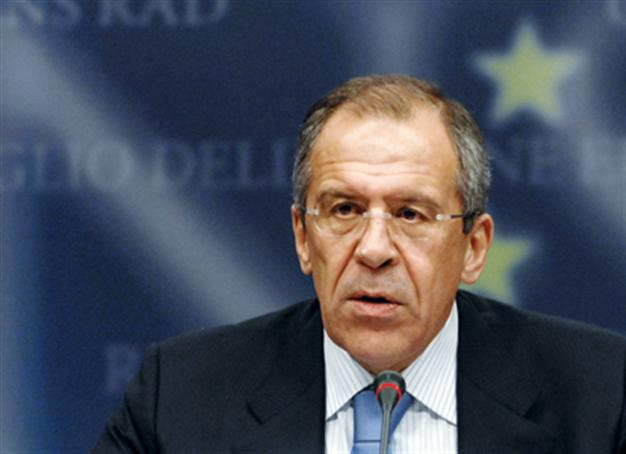Russia warns against military strike on Iran
TEHRAN / MOSCOW

Foreign Minister Sergei Lavrov has vehemently opposed a strike against Iran. AP photo
Russia warned yesterday that a possible military strike against Iran would be a “very serious mistake” that would lead to further conflict and civilian casualties.
Russia is deeply opposed to any military action against the Islamic republic, although Moscow has supported United Nations Security Council sanctions against Iran over its nuclear program. “It would be a very serious mistake fraught with unpredictable consequences,” Russian Foreign Minister Sergei Lavrov said after a warning by Israeli President Shimon Peres that an attack was increasingly likely. “Military intervention only leads to a rise in casualties and human suffering,” said Lavrov.
Israel’s warning came ahead of this week’s expected presentation of a new report from the U.N. nuclear watchdog on Iran’s nuclear drive. Russia has urged Iran to improve its nuclear program transparency while trying to shield its Soviet-era ally from the most damaging sanctions and possible threat of war. Lavrov said current military campaigns such as the one being waged by NATO in Afghanistan proved the dangers of foreign involvement. “This is confirmed to us every day when we see how the problems of the conflicts around Iran are being resolved - whether Iraq or Afghanistan or what is happening in other countries in the region. Military intervention only leads to many times more deaths and human suffering.”
“The use of force is only possible under two circumstances envisioned by the U.N. charter: either through self-defense, when you come under armed attack, or through a decision by the U.N. Security Council,” ” said Lavrov.
Iran’s President Mahmoud Ahmadinejad, in an interview with Egypt’s Al-Akhbar newspaper published yesterday, warned against a military attack on Iran and again insisted Tehran’s atomic program was for peaceful purposes only. “Iran’s capabilities are increasing and it is progressing, and for that reason it has been able to compete in the world. Now Israel and the West, particularly America, fear Iran’s capabilities and role,” Ahmadinejad told the state-run daily. “Therefore they are trying to gather international support for a military operation to stop (Iran’s) role. The arrogant should know that Iran will not allow them to take any action against it,” he said.
‘Former Soviet scientist plays key role’
Meanwhile, citing unnamed diplomatic and intelligence sources, The Washington Post said yesterday according to the intelligence provided to the International Atomic Energy Agency (IAEA), Iran has overcome key technical hurdles with the help of a former Soviet weapons scientist and crucial technology linked to experts in Pakistan and North Korea. The Post said former Soviet nuclear expert Vyacheslav Danilenko “allegedly tutored Iranians over several years on building high-precision detonators of the kind used to trigger a nuclear chain reaction.”
The report came ahead of the release this week of a report into Iran’s nuclear program by the IAEA, which diplomats say will focus on the Islamic republic’s alleged efforts to put fissile material in a warhead and develop missiles. Iranian Foreign Minister Salehi said in comments published in Iran on Sunday that it was based on “counterfeit” claims. However Western officials said the intelligence reinforced concerns that Iran continued to conduct weapons-related research after 2003 when, according to U.S. intelligence agencies, Iranian leaders halted such experiments in response to international and domestic pressures, the Post said.
According to the intelligence provided to the IAEA, key assistance in both areas was provided by Danilenko, who was contracted in the mid-1990s by Iran’s Physics Research Center, the paper said. Danilenko offered assistance to the Iranians over at least five years, giving lectures and sharing research papers on developing and testing an explosives package that the Iranians apparently incorporated into their warhead design, said the Post, citing two officials with access to the IAEA’s confidential files. Danilenko, who had been reportedly contacted by IAEA investigators, acknowledged his role in assisting Iranian scientists but “said he thought his work was limited to assisting civilian engineering projects,” the Post said, citing officials. There is no evidence that the Russian authorities knew of Danilenko’s activities in Iran, the paper said, adding that Pakistani and North Korean scientists also helped Iranian experts in theoretical design work. Dr. Vyacheslav Danilenko is a Ukrainian scientist.
Additional AFP, AP and Reuters reports used in this story
















